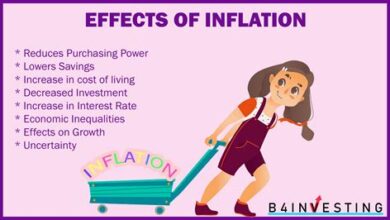Investing in Emerging Markets: Opportunities and Risks

Discover potential investment opportunities and strategies for successful investment in emerging markets. Learn how to assess political, economic, cultural, and regulatory risks.As global markets continue to evolve, investors are increasingly looking towards emerging markets for potential opportunities. However, investing in these markets requires a deep understanding of the unique challenges and potential rewards they offer. In this blog post, we will delve into the world of emerging markets, exploring the potential investment opportunities they present, as well as the accompanying political, economic, cultural, and regulatory risks. By understanding the intricacies of these markets and developing strategies for successful investment, investors can position themselves to take advantage of the growth potential while minimizing the associated risks. Whether you are an experienced investor or just beginning to explore emerging markets, this post will provide valuable insights into the dynamics of investing in these evolving economies. Join us as we explore the opportunities and risks of investing in emerging markets.
Understanding Emerging Markets
Investing in Emerging Markets: Opportunities and Risks
Emerging markets refer to developing countries that are experiencing rapid economic growth and industrialization. These regions are characterized by a growing middle class, increasing consumer demand, and expanding infrastructure. Understanding the dynamics of emerging markets is crucial for investors looking to capitalize on the potential opportunities they offer.
One key aspect of understanding emerging markets is the concept of risk and reward. While these markets present opportunities for high returns on investment, they also come with a certain level of risk. Political instability, economic volatility, and regulatory challenges are common factors that investors must navigate when considering opportunities in emerging markets.
Furthermore, cultural differences and consumer behavior in these markets can significantly impact investment strategies. It’s important for investors to conduct thorough research and due diligence to gain insights into the local customs, business practices, and regulatory environment of the emerging market they are targeting.
Potential Investment Opportunities
Investing in emerging markets can offer a wide range of potential investment opportunities for savvy investors. These markets are characterized by rapid growth, expanding consumer markets, and valuable resources, making them attractive for investment. As these economies continue to develop, there are opportunities for investors to capitalize on new industries and emerging trends that may not be available in more mature markets.
Furthermore, the prospect of higher returns on investment is often a major draw for investors looking to diversify their portfolios. With the potential for higher growth rates and market valuations, investing in emerging markets can provide the opportunity for substantial returns on investment, especially in comparison to more developed markets. This potential for high returns makes emerging markets an appealing option for many investors.
It’s important for investors to carefully assess the investment opportunities in emerging markets before making any decisions. Each market presents its own unique set of opportunities, whether it be in sectors such as technology, manufacturing, or consumer goods. Understanding the specific opportunities within each market is crucial for investors to make informed decisions and maximize their potential for success.
Assessing Political and Economic Risks
Assessing Political and Economic Risks
Assessing Political and Economic Risks
When investing in emerging markets, it is crucial to assess the political and economic risks associated with the country or region. Political instability can lead to drastic changes in government policies, regulations, and laws, which can have a significant impact on investment opportunities. It is important to closely monitor the political landscape and stay informed about any potential changes that could affect the market.
Similarly, economic risks such as inflation, currency devaluation, and fluctuating interest rates can also pose significant challenges for investors in emerging markets. It is essential to conduct thorough research and analysis of the economic conditions in the target market to make informed investment decisions. Understanding the political and economic risks is crucial for mitigating potential downsides and maximizing returns in emerging markets.
Navigating Cultural and Regulatory Challenges
Investing in emerging markets can be a lucrative opportunity for investors looking to diversify their portfolio and tap into the potential growth of developing economies. However, navigating the cultural and regulatory challenges of these markets is essential for successful investment. Cultural differences can impact communication, negotiation, and business practices, while regulatory compliance is crucial for avoiding legal and financial risks.
One of the key challenges when investing in emerging markets is understanding and respecting cultural norms and business customs. Developing a deep understanding of the local culture, traditions, and etiquette can help build trust and relationships with local partners and stakeholders, ultimately leading to successful business ventures. Moreover, adapting business strategies and practices to align with cultural expectations can enhance the effectiveness of investment activities.
Additionally, regulatory challenges in emerging markets can pose significant obstacles for foreign investors. Adhering to local laws, regulations, and bureaucratic processes is vital for ensuring compliance and avoiding legal repercussions. Engaging with local legal advisors and regulatory experts can provide valuable insights and guidance to navigate the complex legal and regulatory landscape of emerging markets, ultimately mitigating the risks associated with non-compliance.
Strategies for Successful Investment
When it comes to investing in emerging markets, it’s important to have a solid strategy in place to ensure success. One of the key strategies for successful investment in these markets is to conduct thorough market research and due diligence. This involves assessing the political and economic risks in the target market, understanding the cultural and regulatory challenges that may impact investment, and identifying potential investment opportunities that align with your investment goals. By thoroughly researching the market and understanding the potential risks and challenges, you can develop a strategy that minimizes these risks and maximizes your chances of successful investment.
Another crucial strategy for successful investment in emerging markets is to build strong local partnerships and networks. These partnerships can provide valuable insights and connections within the market, helping you navigate the local business environment more effectively. Additionally, local partners can offer support and guidance in understanding local customs, regulations, and business practices, which can be invaluable in ensuring successful investment. By leveraging local partnerships, you can gain a deeper understanding of the market and increase your chances of success.
Lastly, a successful investment strategy in emerging markets involves having a long-term perspective. Patience and persistence are key when investing in these markets, as it may take time to see returns on your investment. By having a long-term perspective, you can weather the ups and downs of the market and capitalize on long-term growth opportunities. This approach allows you to build sustainable and profitable investments in emerging markets over time, rather than seeking quick wins.





